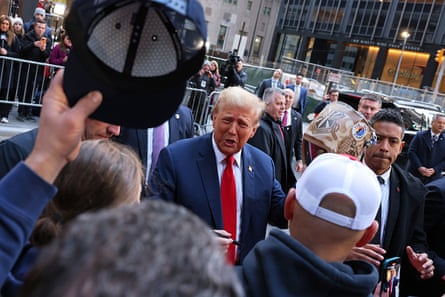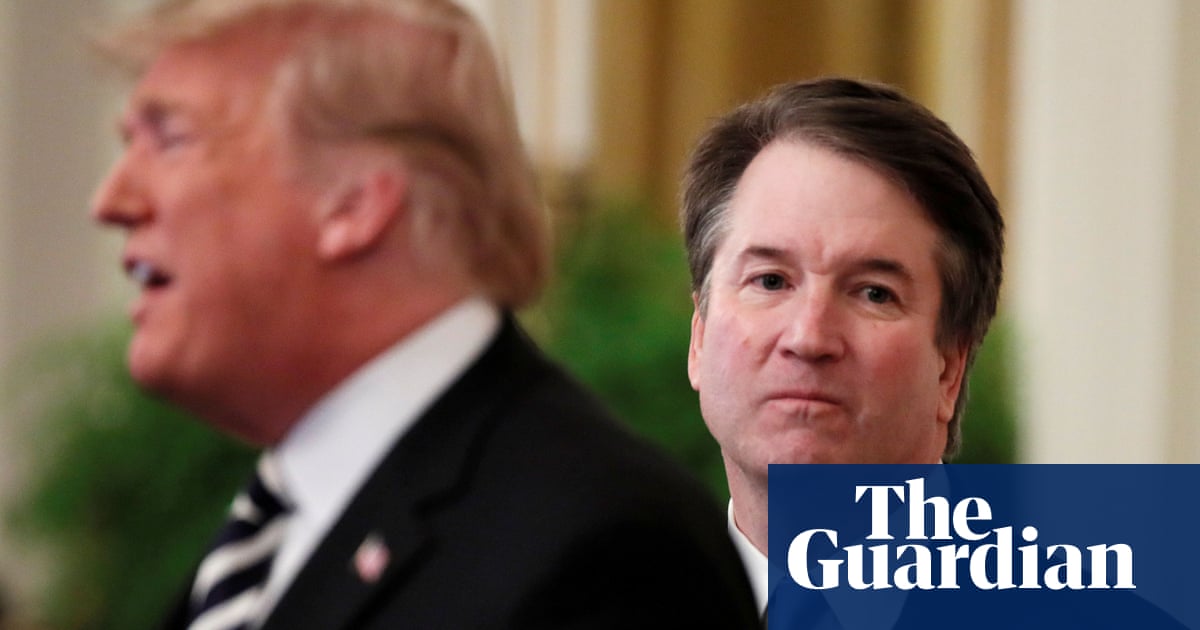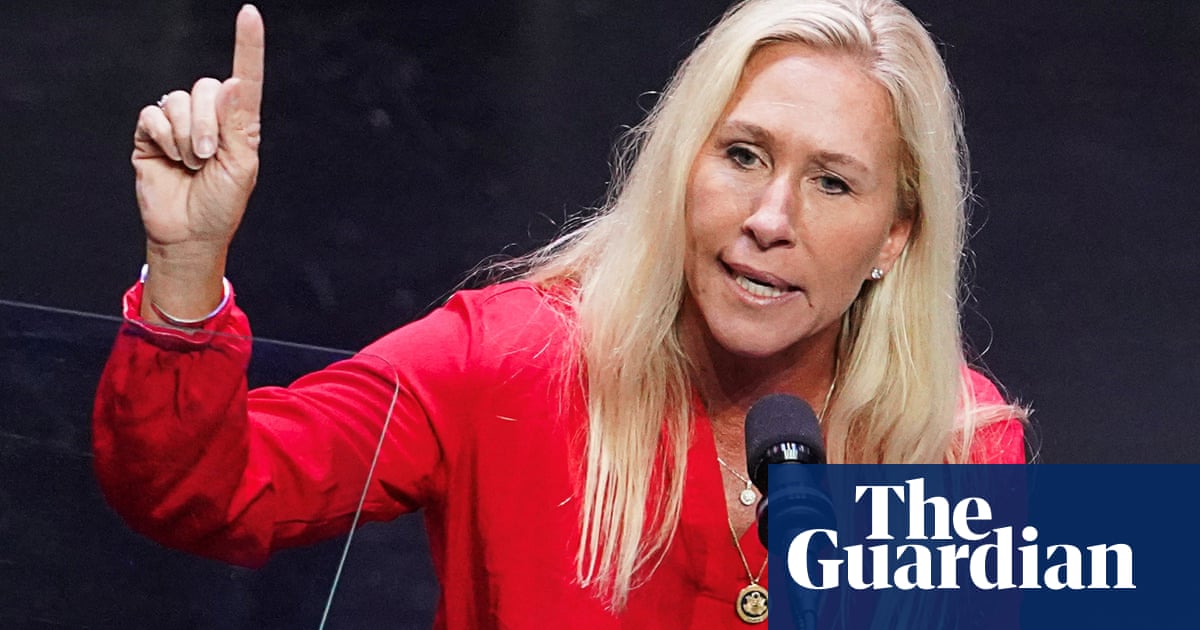Even though the vast majority of US labor unions have endorsed Kamala Harris, many union members support Donald Trump, and with the race so close, unions have stepped up efforts to convince those workers that Trump is no friend of unions or workers.
In Pennsylvania, Michigan and Wisconsin – states that Harris badly needs to win – union households are an important voting bloc, and unions have mobilized thousands of members to engage in worksite conversations, door-knocking and phone-banking to make the case that Harris is far better for workers than Trump.
“Trump has found ways to break through with working people,” Liz Shuler, president of the AFL-CIO, the nation’s main labor federation, told the Guardian. “He has the rhetoric down, but he doesn’t have the results to back it up. That’s why it’s important that we, as messengers, combat that with facts.”
The AFL-CIO is urging the nation’s 14.4 million union members to look at its “candidate comparison” website, which makes the case that Trump is anti-union. He crossed a union picket line, praised the idea of firing workers who are on strike, and often used non-union workers at his construction sites.
In contrast, the website explains, Harris has shown solidarity with workers by, for instance, walking a United Auto Workers picket line and by, unlike Trump, backing the Protecting the Right to Organize Act, which would make it easier to unionize workers.

“A lot of people don’t trust their information sources any more,” whether political parties or the news media, Shuler said. But workers trust their unions as an information source, she said, because workers have long trusted their unions on crucial issues like wages, benefits, pensions and job safety.
Shuler said member-to-member political communications, such as talking to co-workers, were “the most impactful”. The AFL-CIO recently announced a digital and streaming ad buy, going to 2.5 million workers, in which rank-and-file workers do the talking. “We’re noticed that union members’ stories break through to workers in a way that’s different,” Shuler said.
She noted that for the first time the AFL-CIO was specifically doing a women’s mobilization – on equal pay, childcare and reproductive rights. “We haven’t always been present on reproductive health,” she acknowledged.
Sara Nelson, president of the Association of Flight Attendants, said unions needed to have discussions with their members about “how these elections affect our work lives”. With Trump and Harris as the candidates, “the conversation this year could not be easier”, Nelson said. “Trump wants to fire striking workers, and Biden and Harris have upheld our right to strike. If you want someone who fights for workers’ rights and fights against corporate greed and inequality, then vote for Harris and Walz.”
Nelson added: “We see one candidate as the collective bargaining agent in chief and the other as the union buster in chief.”
The Pittsburgh-based United Steelworkers union has members out every morning at plant gates making the case for Harris. It also spread a pro-Harris message in 100 recent town hall meetings that steelworker locals held across the US.
“Our focus is making sure we’re putting the issues in front of people and connecting them with the candidates’ policies,” said Kim Miller, a steelworkers official helping run the union’s political operations. Miller noted that her union had for 50 years urged president after president to embrace industrial policies to help save manufacturing.
“With the Biden-Harris administration,” she said, “for the first time in decades, we’re seeing an industrial policy” with the Chips Act bringing back computer chip production from overseas and the infrastructure bill. “That is not only rebuilding our nation, but they’re using many products that steelworkers make.”
Several labor leaders said it was harder to get union members to volunteer this year to do political work. That has created some concern in battleground states.

Steve Rosenthal, a former AFL-CIO political director, said, “I think there should be emergency statewide meetings in Pennsylvania, Wisconsin and Michigan with the people at the very top of the labor movement doing a serious ‘Come to Jesus’ and making it clear that from now until election day, we need as many people as we can get on the ground, lining up volunteers from locals, knocking on doors, making phone calls, going to worksites, speaking to members. To get volunteers, it takes a massive effort and constant badgering.”
Trump beat Hillary Clinton in Michigan by just 11,837 votes in 2016, and Biden won Wisconsin by 20,682 in 2020. This means that persuading a small percentage of union voters in those states can make the difference. According to exit polls, 1.1 million or 21% of Michigan voters were from union households in 2020, as were 448,000 or 14% in Wisconsin and 1.2 million or 18% in Pennsylvania.
The Teamsters’ union was the only one of the 10 largest unions not to endorse a presidential candidate. The Teamsters’ president, Sean O’Brien, said one reason for the non-endorsement was he didn’t want to “look out of step” because “half our membership [are] Democrats and half are Republicans”.
That non-endorsement upset many Democrats, partly because the Biden-Harris administration had worked hard to win enactment of the Teamsters’ main legislative priority, a bill that saved the pensions of 400,000 Teamsters.
“The job of a leader is to lead,” Rosenthal said. “If you believe there are clearcut differences and there’s a lot at stake for your union’s members with the differences between Donald Trump and Kamala Harris, it’s your responsibility to make the case to your state and local leaders and your members. It’s the union’s job to communicate the difference between the candidates. It’s the union’s responsibility to get its members to support the candidate who will stand with workers and support unions.”
Soon after Teamsters headquarters announced that non-endorsement, Kevin Moore, president of the Teamsters’ regional council in Michigan, which represents 245,000 active and retired Teamsters, rushed to get his council to endorse Harris – one of more than 20 Teamster locals and councils backing Harris. Moore questioned the accuracy of a Teamsters poll that showed strong support for Trump. “Our people in Michigan overwhelming support Kamala Harris,” he said. “We remember that Harris cast the deciding vote to save Teamsters’ pensions, and we won’t forget that.”
Brian Pannebecker, a Ford worker in Michigan, helped found Auto Workers for Trump, a group that holds frequent rallies outside auto plants. He voices disgust with the UAW’s endorsement of Harris – Shawn Fain, the union’s president, has done a video saying, “Trump is all talk and no action when it comes to delivering for autoworkers.”
“I don’t give a rat’s rear end what Shawn Fain says,” Pannebecker said, slamming Biden and Harris for pushing the transition to electric vehicles and noting that it takes fewer workers to produce EVs than internal combustion vehicles. “Why would an autoworker support a government mandate forcing manufacturers to build electric vehicles when 50% of all EV batteries are built by the Chinese?” he said.
Pannebecker estimates that over half of autoworkers back Trump, but UAW officials insist that’s exaggerated, saying autoworker support for the Republican candidate hasn’t exceeded 35% in the past four presidential elections.
Fain recently noted that the UAW has for decades urged automakers to produce vehicles that are better for the environment. “We can’t hide from this,” he said. “We’re fighting to keep internal combustion jobs as the nation builds more EV and EV battery plants so those are made here, not in China.”
Fain said Biden’s and Harris’s policies were “actually building manufacturing here”, while saying that Trump’s “trickle-down policies” have led to “all these jobs leaving America”. He said that under Trump’s presidency, it was “more of the same – the rich get richer, keep outsourcing our work, and the handful at the top and the shareholders take all the money and the workers who create the wealth get left behind.”
“The majority of our members get that,” Fain said. “I believe that Kamala Harris will win Michigan and that auto workers will be a big part of delivering that.”

 German (DE)
German (DE)  English (US)
English (US)  Spanish (ES)
Spanish (ES)  French (FR)
French (FR)  Hindi (IN)
Hindi (IN)  Italian (IT)
Italian (IT)  Russian (RU)
Russian (RU)  2 hours ago
2 hours ago
























Comments